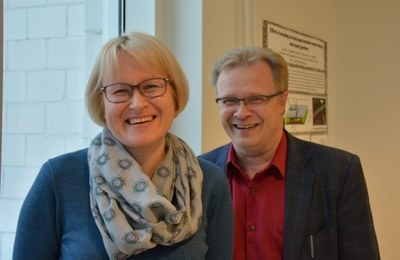PRACE organization has been given 35 million CPU core hours for a collaborative project of Academy Professor Hannu Häkkinen and Professor Karoliina Honkala at the University of Jyväskylä’s Nanoscience Center.
 Image credit: University of Jyväskylä
Image credit: University of Jyväskylä
The project will take place over the next 12 months in the Barcelona Supercomputing Center and concentrates on large-scale density functional theory calculations and molecular dynamics simulations to explore chemical reactions catalyzed by atomically specific, ligand-stabilized metal nanoclusters.
These cluster materials are evolving catalysts, for example, for hydrogenation reactions of organic molecules in solution-phase catalysis. Their atomic structures are recognized, which offers exclusive possibilities to compare the catalytic activity to atomically distinct reaction mechanisms.
Partnership for Advanced Computing in Europe (PRACE) is a non-profit organization of 26 European member nations that encourages high-performance computing by awarding substantial computational resources to scientific projects based on yearly calls for proposals that undergo a peer-review assessment.
This is already the fourth significant supercomputing grant that my group has received through competitive evaluation of the proposals in the PRACE organization since 2012. Professor Honkala and I look forward to combining our expertise on ligand-stabilized metal nanoclusters and computational catalysis, and to intensify collaborations to our partners doing experimental research on these nanocatalysts in China and in the Netherlands. The large-scale atomistic simulations in this project will also produce huge datasets encompassing structure-property correlations that will be used later in a parallel project aiming at using artificial intelligence to understand nanochemistry and catalytic reactions.
Hannu Häkkinen, Professor, Nanoscience Center, University of Jyväskylä.

